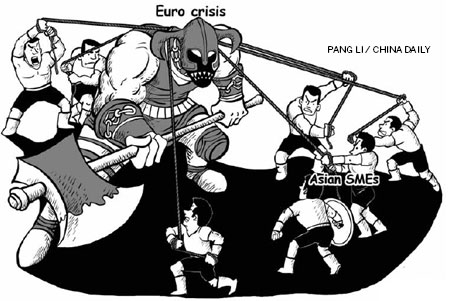Asian SMEs must plan for crisis

Asia's small and medium-sized enterprises (SMEs) are thriving, benefiting from strong economic growth throughout the region. But in an increasingly interconnected world, they are not immune to problems elsewhere, such as the euro crisis.
Even for SMEs not directly exposed to European trade flows and/or currencies, there could be bottom line implications. The uncertain outcome of the crisis could lead to increased volatility in foreign exchange and commodity prices, both of which could have a great impact on SMEs engaged in trade and manufacturing. Given these risks, it is important for all SMEs to have sufficient liquidity, including access to debt, to ensure business continuity in their operations.
SMEs are often an integral part of the supply chain of multinational companies (MNCs). For larger medium-sized enterprises, they may supply to or buy direct from the MNCs and for smaller businesses. They may also deal directly or through other companies, including other SMEs. If an MNC is headquartered or based in Europe, then all SMEs in its supply chain are likely to feel the impact of the debt crisis.















